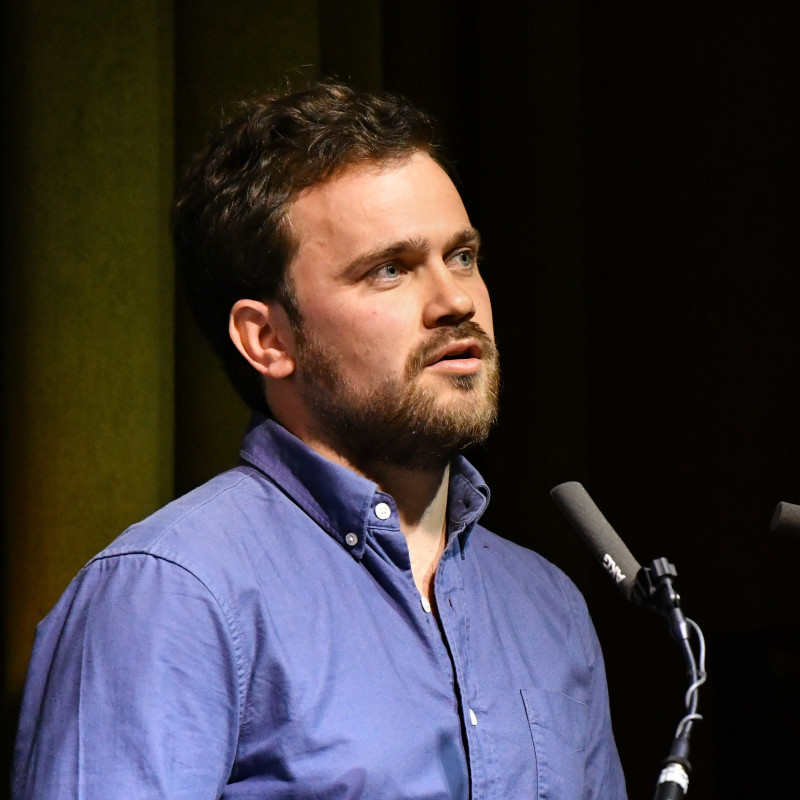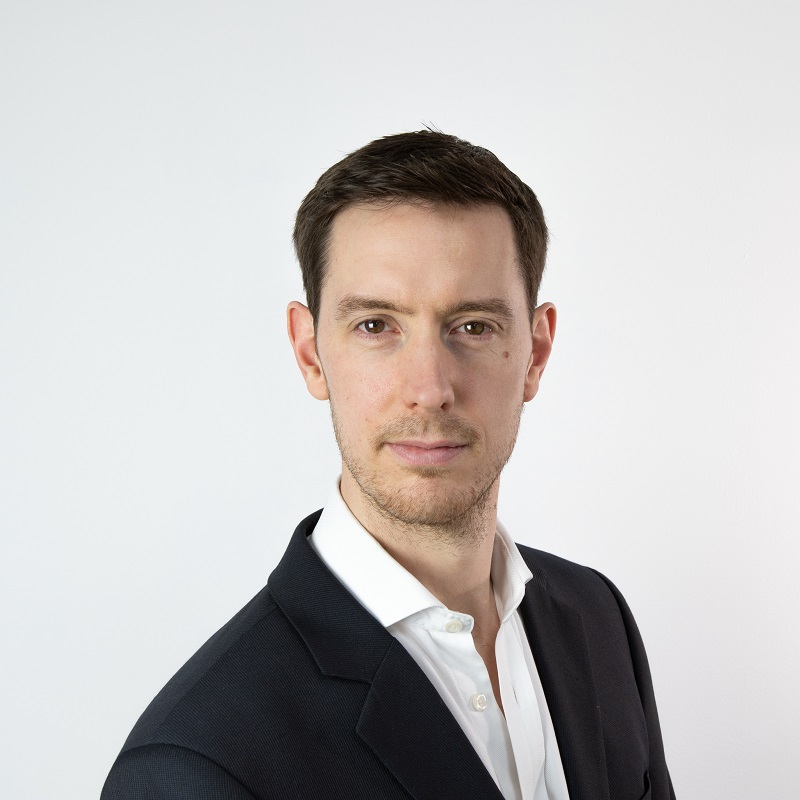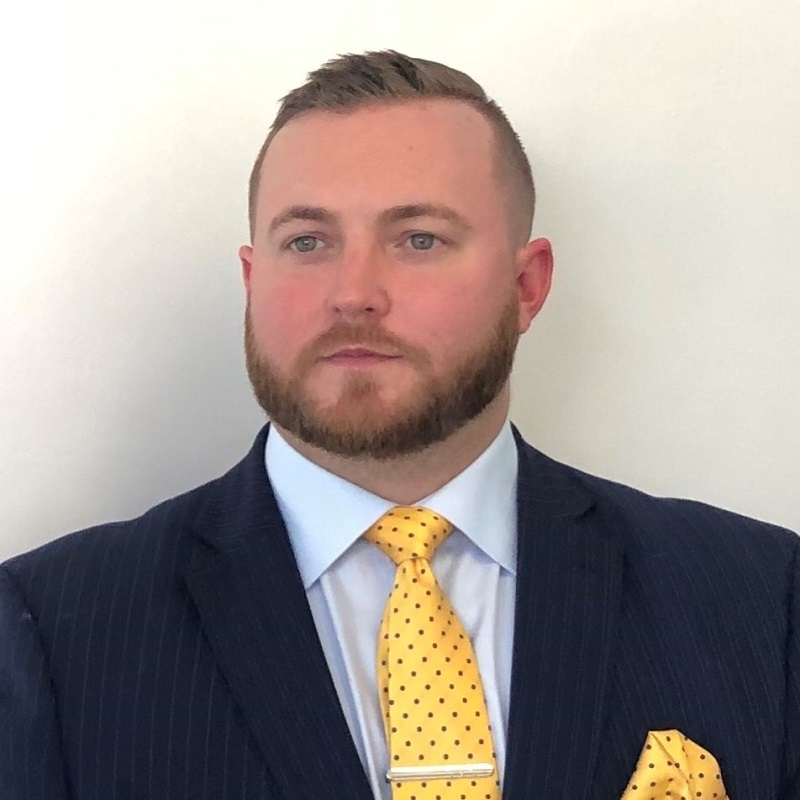
Charlie Fraser, The Entrepreneurial Refugee Network (TERN)
Charlie Fraser, co-founder of The Entrepreneurial Refugee Network (TERN) sits down with GBI editor Greg Gille to discuss the entrepreneurial potential of refugees, the work TERN is doing to support them and shift the narrative around their contribution to local communities, and more.
- Can you briefly introduce TERN?
TERN is a social enterprise based in London, that has been running since 2016. Our mission is to enable refugees to thrive through the power of their own ideas. We do that through a community that has just passed 300 refugee founders, and connects them to a network of support that can help from early-stage ideas all the way to scaling successful businesses.
Our goal is to reach 4,000 refugees in the network and launch 2,000 refugee-led businesses by 2025, both here and in North America.
- What was the inspiration behind the launch of the initiative?
I am one of four co-founders, with two of us still involved full-time. For me, this was straight out of university, but I had spent time in Kos and the “jungle” in Calais, which made me very aware of the risks that people are taking to build a new livelihood in a new culture and community. Meanwhile my co-founder had a lot of practical experience that made TERN possible, having worked for a few years already on refugee entrepreneurship in East Africa.
The idea came out of the recognition that, in spite of the emerging forced migration crisis that was happening at the time (particularly in wake of the Syrian conflict), we were failing to include refugee populations effectively into our societies and communities. We wanted to leverage our own access to networks and knowledge to level the playing field and help that community.
- When we talk about refugee entrepreneurship in the UK, what numbers does that represent?
There are about 140,000 refugees in the UK at the moment - this has actually remained pretty consistent for a long period of time, despite the misconception that we are at a peak period for refugee arrivals, which is absolutely not the case. What we know is that about 20% of refugees are looking at self-employment - that is about double the UK average, so this is actually a very entrepreneurial community.
As a result, we believe that up to 10,000 refugees in the UK are looking or have the potential to launch their own business here. It is a huge untapped source of business potential, often with a lot of previous experience in their countries of origin, but they need access to the support to succeed in the UK, and this is where we are trying to help.
- What do you see as the main roadblocks to refugees being able to start a business over in the UK?
We frame these challenges under three main areas. The first is access to knowledge: 70% of the people we work with have started or managed businesses outside of the UK, but translating that experience to the UK market is a big barrier, especially if you’re isolated and not connected to mainstream support. A lot of the work we do is about allowing refugees to explore self-employment in the UK, and that goes from the basics around registration all the way to how you test an idea for UK customers, validate it and stay competitive.
The second obstacle is access to customers. If you’re isolated in the UK, without friends and family, there is often a lack of networks that help promote your brand as you’re starting. Typically, entrepreneurs can rely on friends and family to be the first people to shout about their brand and buy from them, and refugees don’t have that same support network. So we work on how we can connect them to the customers that will buy into their brands early on. We launched an online marketplace for refugee entrepreneurs in June last year, specifically to help solve that problem.
The third area is access to finance. Refugees struggle to get access to personal banking, let alone business banking - as a result, access to a whole range of business finance is really difficult for founders. That is probably the biggest challenge we have at the moment - the lack of credit and capital is really what is preventing a lot of these businesses from getting off the ground.
- What have been some of the key initiatives taken by TERN to tackle these issues in the past couple of years?
We are about to launch our first e-commerce incubator programme, to help refugee entrepreneurs sell online, in collaboration with Ebay. We are also delivering social entrepreneurship and food incubator programs for the first time, so focusing on specific industries.
On a slightly longer timeline, we are looking to launch the first micro fund for refugee entrepreneurs, to help us solve the access to capital problem we talked about earlier. This is registered as an independent company to TERN; we have just finished the pilot and are looking to raise more traditional impact investment for it, at zero interest, and effectively we will then be passing on that capital to entrepreneurs with micro loans of up to £1,000 with no interest. This is effectively recycling small amounts of capital, but deployed really quickly to allow entrepreneurs to build up a credit history in the UK. What is interesting about this is we are really borrowing ideas from developing markets and applying them to a UK context.
- What would you say is the level of awareness of the entrepreneurial potential of refugees within the wider business community?
This is an interesting question, and absolutely part of the challenges we are trying to solve. At the moment it is very low: when people think of refugees, they usually don’t think of entrepreneurship. However they feel about refugee arrivals, people tend to think about the hardship first and foremost. The problem with that narrative is that one person’s hardship is another person’s burden, so it is setting people up to see it in terms of needing public and state support. We want to reframe the conversation away from hardships and towards livelihoods - this community has a huge amount of experience and potential, and if we invest in that, they will create businesses and jobs in their new communities. It creates a much more natural environment to have positive policy discussions around how we include refugees. We have a long way to go on that, but this is the goal!
- What have you found are some of the best ways to convey that message, and help change the narrative?
We know that entrepreneurship is really powerful at countering negative narratives: there’s really no counter-argument to someone starting a business in your local community, so we are starting to do a lot more work around this. What we have found to be really effective is not so much the big success stories of people like Steve Jobs or Michael Marks, but connecting the refugee experience to the person down the street from you starting a business. We want to make sure that people are increasingly aware that they are buying from small businesses operated by refugees in their local communities - the online marketplace we mentioned earlier is a great tool for that. When people buy from refugee-led businesses, they are much more likely to change their perception of refugees, and this is what we want to help drive.
- Speaking of these stories, are there any TERN-backed businesses in particular that stand out for you?
Broadly speaking we are seeing two types of business models coming through. On the one hand we are working with businesses that are starting to grow really quickly, and two companies in our network are racing towards being the first £1m-turnover businesses in our community, which is really exciting. One of them is Oshpaz, which is London’s first Uzbek street-food popup and now trading across 8-10 sites, employing 16 staff members primarily from refugee backgrounds. The other one is Liverpool’s first dark kitchen hub, which has launched brands like Sammies and Ganoush and is also doing amazingly.
These are our more classic growth models, but on the other side we have people like Amina Kadogo: she is starting up ANC Admin Solutions, a consultancy that connects primarily refugee mums who need flexible work to non-profit and social-impact admin roles. The idea is to allow lived experience to come into the social sector, while giving primarily disadvantaged parents access to the work that they need to secure an income while they are raising kids. This is a type of business model we are seeing a lot too, which is creating businesses that are solving problems for their communities. When you empower marginalised communities to create their own business models, they create businesses that meet the needs of their communities, and that is what really excites us.
TERN is an ambitious social enterprise and ever-growing community with a mission to enable refugees to thrive through the power of their own ideas. It helps refugees become entrepreneurs, launch businesses and take control of their own futures and has supported over 400 refugee founders since 2016. TERN is the Social Enterprise Partner of the 2022 Growing Business Awards and alumni Amina Kadogo will be taking part in the judging panel for the awards in September.


